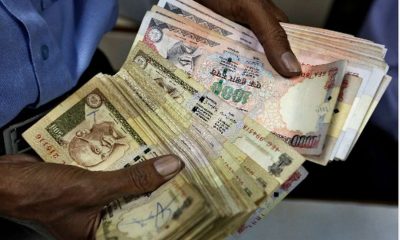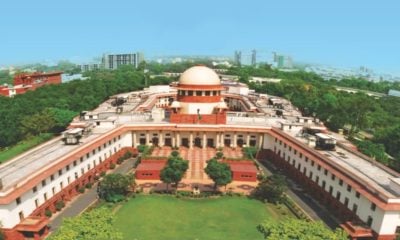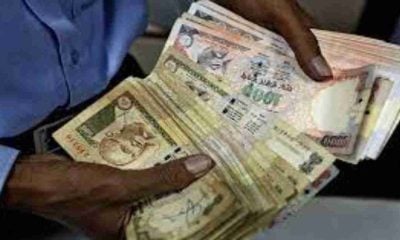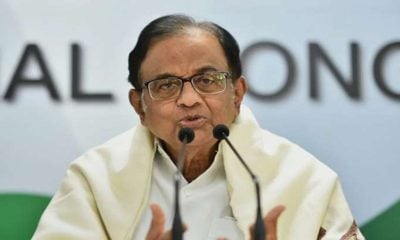Leaving less than Rs.11,000 crore worth of Rs.500 and Rs.1000 notes invalidated overnight by Prime Minister Narendra Modi on November 8, 2016, almost all of these notes – 99.3% – were deposited in the banks, says the Reserve Bank of India’s (RBI) annual report released on Wednesday, August 29.
Finally completing the counting of such notes – it took over one-and-a-half years to do so – the RBI’s said in its report that of the Rs. 15.41 lakh crore worth of 500 and 1,000-rupee notes taken out of circulation through demonetisation on November 8 2016, notes worth Rs. 15.31 lakh crore have been returned.
This means only Rs. 10,720 crore of the junked currency did not return to the banking system.
The banned cash deposited by the public was verified, counted and processed in the sophisticated “high speed currency verification and processing system” for accuracy and genuineness and then shredded,” the RBI said.
The value of banknotes in circulation stands at Rs. 18 lakh crore till the end of the last fiscal, having increased by nearly 38 per cent.
A collateral damage because of the rise in printing and other costs is “dividend RBI pays to the government”, said the report.
The government replaced old Rs. 500 notes with new ones, but Rs. 1,000 notes have not been replaced. Instead, new Rs. 2,000 notes were introduced.
The RBI spent Rs. 7,965 crore on printing new Rs. 500 and Rs. 2,000 and other denomination notes, more than double the spending on cash in the previous year.
In 2017-18, the central bank spent another Rs. 4,912 crore on printing of currency, the annual report said.
Demonetisation was hailed as a step that would curb black money, corruption and check counterfeit currency but according to the RBI, fake notes in banned Rs. 500 and Rs. 1,000 decreased by 59.7 and 59.6 per cent.
The Modi Government had scrapped the SBNs to clamp down on corruption and black money, cut off terrorist financing and tackle fake Indian currency notes. But with almost all the money coming back, experts wonder whether the purpose of demonetisation has been served.
Indicating that cash is back as favourite rather than electronic mode of transaction, RBI said the value of banknotes in circulation increased by 37.7 per cent over the year to Rs 18.03 lakh crore as at end-March 2018. The volume of banknotes, however, increased by 2.1 per cent.
In value terms, the share of Rs 500 and Rs 2000 banknotes, which had together accounted for 72.7 per cent of the total value of banknotes in circulation at end-March 2017, increased to 80.2 per cent as at end-March 2018.
The share of newly introduced Rs 200 banknotes in the total value of banknotes in circulation was 2.1 per cent as at end-March 2018. In volume terms, Rs 10 and Rs 100 banknotes constituted 51.6 per cent of the total banknotes in circulation as at end-March 2018 compared with 62.0 per cent as at end-March 2017.
Experts point out that even though electronic transactions have increased, they haven’t risen at a pace the government expected.
“None of the original objectives have been met. Some of the other objectives laid out fighting terrorism and corruption, even that has clearly not been met,” said Jayati Ghosh, economics professor at New Delhi’s Jawaharlal Nehru University, according to a report by Quartz India. “Instead, what it did was give a body blow to the informal economic activity and I don’t think that the country has still fully recovered from it,” she said.
The Congress said reiterated its allegations of demonetisation being a “Modi Made Disaster”. “RBI Report again proves that Demonetisation was ‘Modi Made Disaster’ of Epic Proportions! 99.30% of Demonetised Money Returns! PM Modi,in his 2017 Independence Day speech made tall claims of Rs 3 Lakh Cr coming back to the system! Modiji, will you apologise for that Lie now?” party spokesperson Randeep Singh Surjewala tweeted.
In a series of tweets, former finance minister P Chidambaram said the bulk of the black money might be in Nepal and Bhutan.
“Every rupee of the Rs 15.42 lakh crore (barring a small sum of Ra 13,000 crore) has come back to the RBI. Remember who had said that Rs 3 lakh crore will not come back and that will be a gain for the government!?” Chidambaram said.
“I suspect that the bulk of the Rs 13,000 crore is currency in Nepal and Bhutan and some that was lost or destroyed,” he said.
“Over 100 lives were lost. 15 crore daily wage earners lost their livelihood for several weeks. Thousands of SME units were shut down. Lakhs of jobs were destroyed,” said the former finance minister about the impact of demonetisation.
Demanding a white paper on the issue, AAP convenor and Delhi chief minister Arvind Kejriwal said in a tweet: “People suffered immensely due to demonetization. Many died. Business suffered. People have a rt to know – what was achieved thro demonetization? Govt shud come out wid a white paper on the same.”
That seems no chance of this, considering the approach of Modi government and the BJP whose MPs joined hands to block the report of Parliament’s Standing Committee on Finance on demonetisation since it was critical of the move.


 Cricket news24 hours ago
Cricket news24 hours ago
 India News23 hours ago
India News23 hours ago
 Latest world news11 hours ago
Latest world news11 hours ago
 Latest world news11 hours ago
Latest world news11 hours ago
 Latest world news10 hours ago
Latest world news10 hours ago
 India News11 hours ago
India News11 hours ago
 India News2 hours ago
India News2 hours ago
 Latest world news1 hour ago
Latest world news1 hour ago















